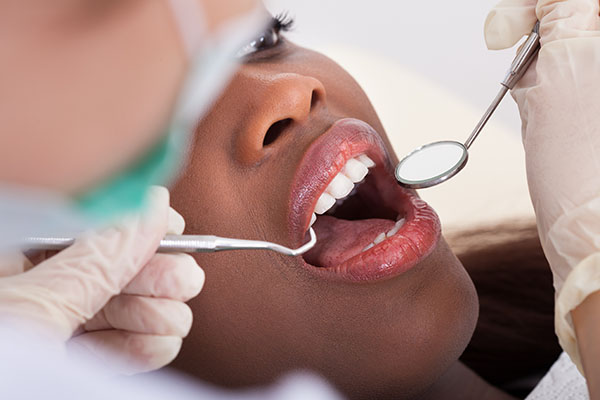 Food and drink have a lot to do with oral health, but certain medications can also have an impact. While bleeding gums are often associated with signs of plaque buildup along the gum line, it is possible for those who take blood thinners to be more susceptible to this condition as well.
Food and drink have a lot to do with oral health, but certain medications can also have an impact. While bleeding gums are often associated with signs of plaque buildup along the gum line, it is possible for those who take blood thinners to be more susceptible to this condition as well.
Blood thinners are used to help manage serious medical conditions, but they can also impact mouth health. It is crucial to pay close attention to oral hygiene and dental checkups if prescribed blood-thinning medications.
The effects of anticoagulants
Blood thinners can be purchased as an over-the-counter medication (as with aspirin) or prescribed by a physician. The purpose of these medications is to reduce the chances of having either a stroke or heart attack, as the components work to stop blood clots from forming. If a blood clot is able to travel to the heart or brain and cause a blockage, serious side effects occur. However, because blood does not clot as fast when on anticoagulants, it can create complications during medical procedures or when a wound occurs.
Bleeding gums are also more complicated when blood thinners are involved. It is normal for healthy gums to bleed a little when flossing or brushing, but anticoagulants can exacerbate this issue. Brushing the gums too hard or with a stuff-bristled toothbrush can cause the gums to bleed more than usual, and great care needs to be taken when the bleeding does not stop.
The impact of blood thinners on oral health
One of the more serious concerns with blood thinners and oral health is the potential for complications during dental procedures. The dental professional should always be told in advance when a patient is on blood thinners, as a procedure may be put on hold while there is an increased risk of heavy bleeding. However, being on blood thinners does not mean it is OK to reduce vigilance on oral hygiene.
Some people taking anticoagulants experience mild to severe bruising of the gums during routine hygiene like brushing and flossing, or they may notice heavier bleeding if they sustain an injury to the mouth. It is not normal for the gums to bleed for prolonged periods of time or to bleed significantly each time flossing and brushing takes place. This could be a sign of a more serious concern that needs to be checked.
Minimizing the risk of bleeding
Bushing and flossing twice a day with an extra-soft-bristled toothbrush can reduce the risk of excess bleeding. When plaque is found along the gumline, it leads to inflamed gums. A sign of this inflammation is increased bleeding, and if left unresolved, can lead to the dangerous condition of periodontitis. Increasing the intake of vitamin C can help the body fight off infections that cause the gums to bleed, and rinsing with an antibacterial mouthwash can also rid the mouth of plaque and promote healthy gums.
Conclusion
Bleeding gums can be expected when taking blood thinners, but they should never be taken lightly. Maintain regular oral hygiene practices to reduce the risk of more serious bleeding from gum disease.
Request an appointment or call Leading Edge Dental Center at 847-796-8731 for an appointment in our Skokie office.
Related Posts
Although there are often no painful symptoms of gum disease in the early stages, it is crucial to treat gum disease as soon as it is detected. Otherwise, the disease could worsen or lead to more severe oral health concerns that require extensive treatment to address properly.Understanding the dangers of gum disease can provide the…
Are you wondering whether you can do anything to prevent gum disease? According to the Centers for Disease Control and Prevention (CDC), gum disease affects over half of all Americans over the age of 30.Early stages of gum disease, such as gingivitis, may be treated with a dental cleaning every six months and good oral…
Along with swelling and pain, consistently bleeding gums can be a symptom of gum disease. There are two main types of gum disease, gingivitis and periodontitis, with the latter being a more advanced version. In serious cases, this condition can ultimately result in tooth loss. It is helpful to understand who may be more susceptible…
